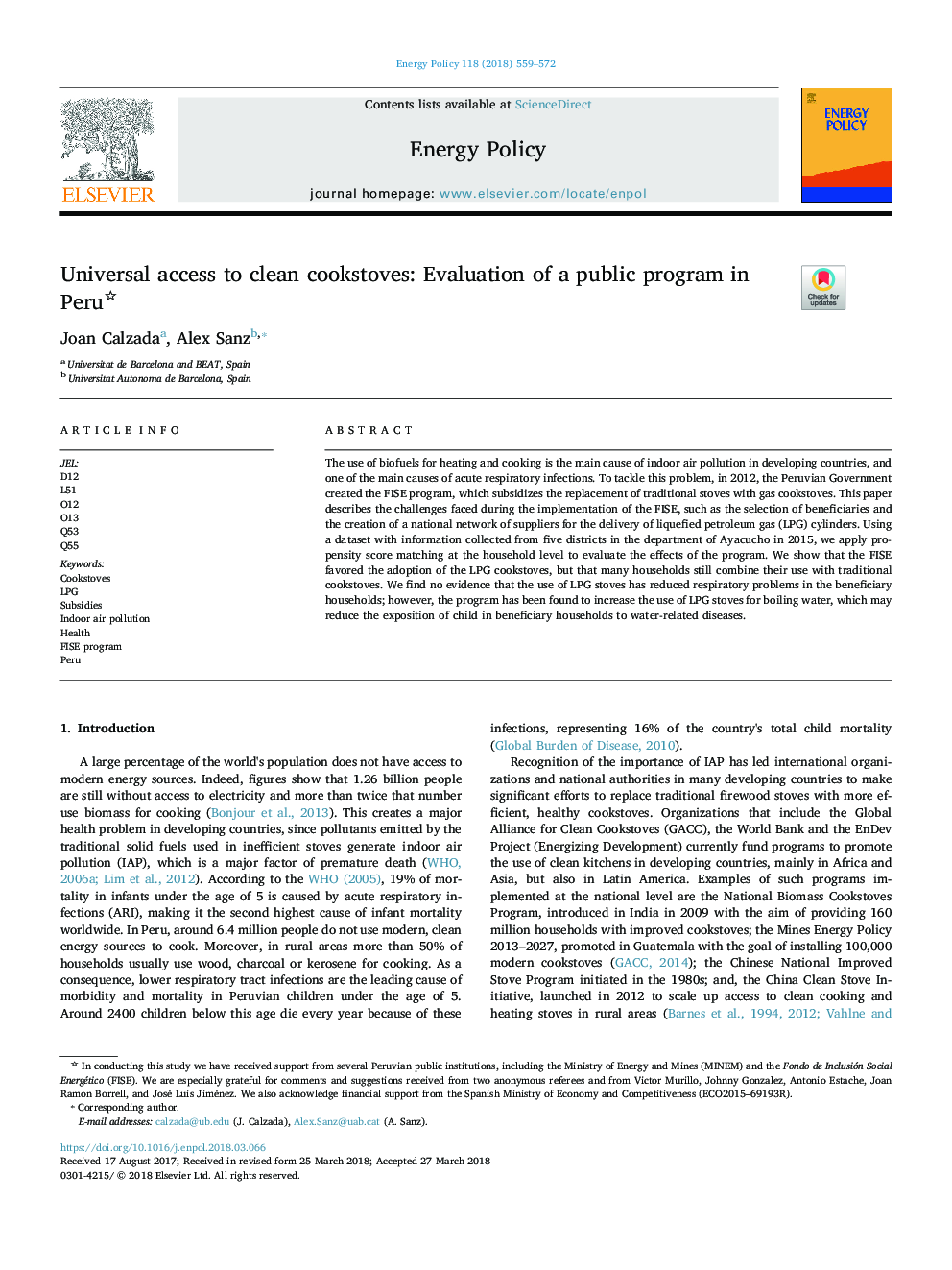| Article ID | Journal | Published Year | Pages | File Type |
|---|---|---|---|---|
| 7397081 | Energy Policy | 2018 | 14 Pages |
Abstract
The use of biofuels for heating and cooking is the main cause of indoor air pollution in developing countries, and one of the main causes of acute respiratory infections. To tackle this problem, in 2012, the Peruvian Government created the FISE program, which subsidizes the replacement of traditional stoves with gas cookstoves. This paper describes the challenges faced during the implementation of the FISE, such as the selection of beneficiaries and the creation of a national network of suppliers for the delivery of liquefied petroleum gas (LPG) cylinders. Using a dataset with information collected from five districts in the department of Ayacucho in 2015, we apply propensity score matching at the household level to evaluate the effects of the program. We show that the FISE favored the adoption of the LPG cookstoves, but that many households still combine their use with traditional cookstoves. We find no evidence that the use of LPG stoves has reduced respiratory problems in the beneficiary households; however, the program has been found to increase the use of LPG stoves for boiling water, which may reduce the exposition of child in beneficiary households to water-related diseases.
Related Topics
Physical Sciences and Engineering
Energy
Energy Engineering and Power Technology
Authors
Joan Calzada, Alex Sanz,
